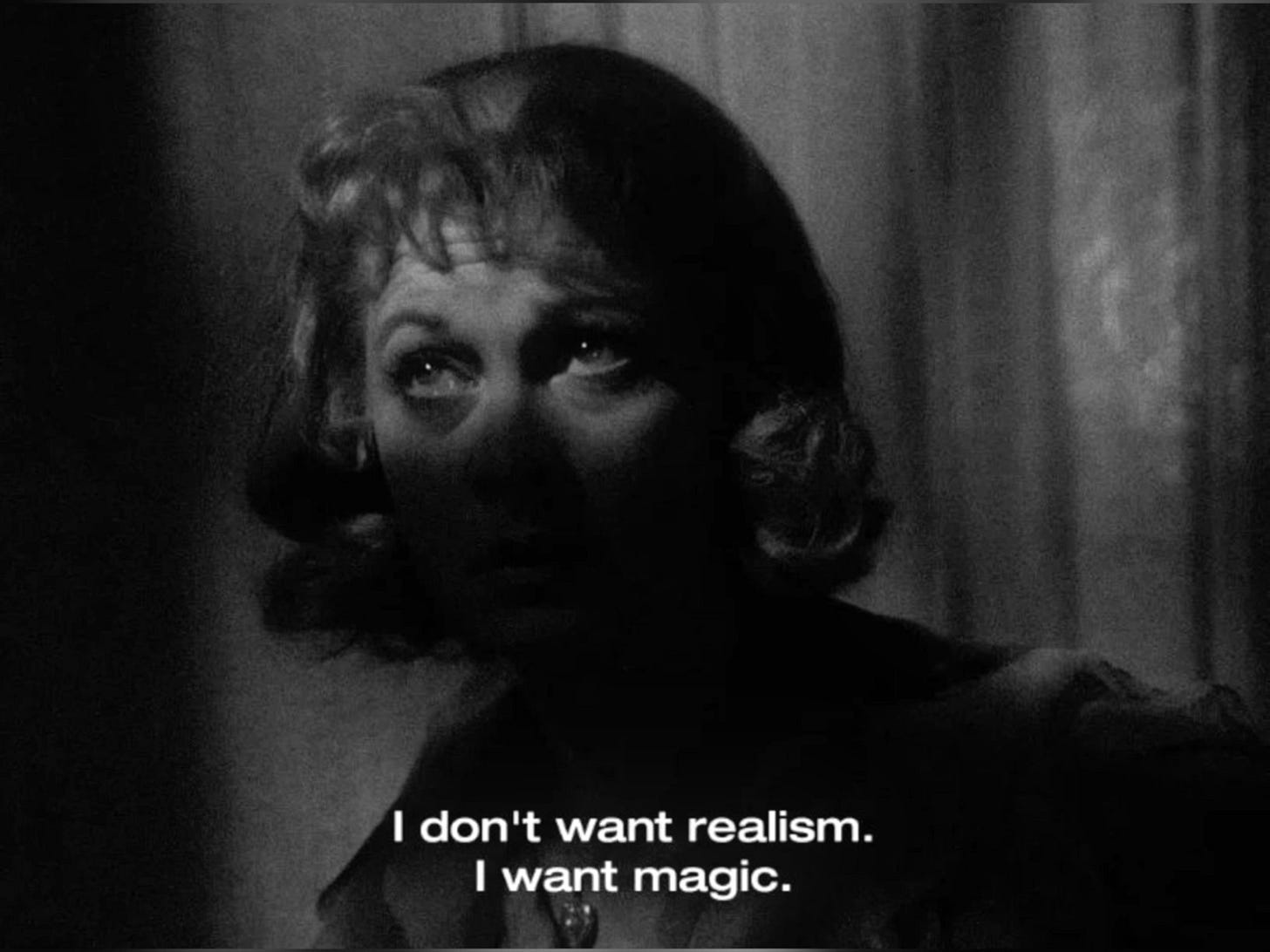Making magic
Dedicated to daydreams and the importance of being full of thoughts
The first time it happened, it was a shock. But every unconscious thought becoming aware of itself is.
There she is, 9-year-old me, badly cut fringe and all (whatever all means), standing on a stage in front of an overwhelming crowd of strangers and schoolmates…




